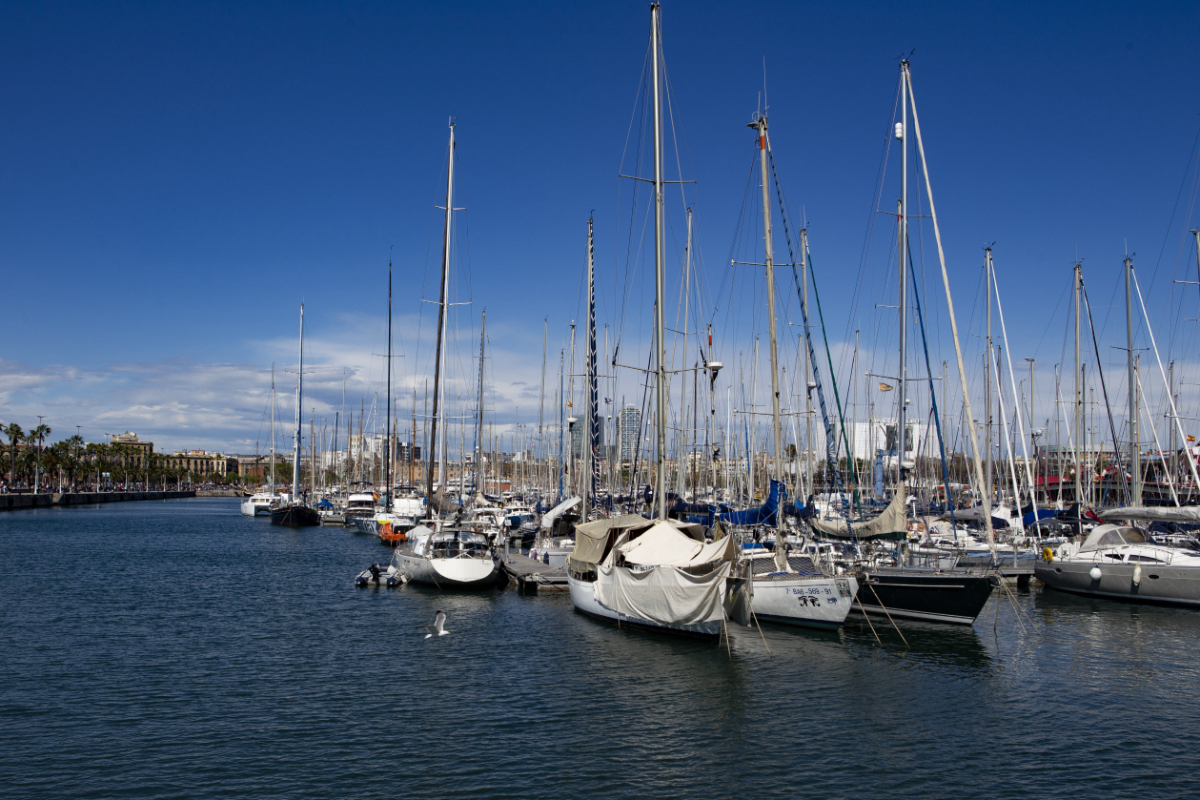Explore the signs your yacht engine needs repair - understand common issues, such as overheating and leaks, to ensure smooth sailing and cost-effective maintenance.
Why Yacht Engine Health Matters
If you own a yacht, keeping the engine healthy is very important. Your yacht's engine helps it move safely through the water. Without a good-working engine, your yacht can't go anywhere, and you might get stuck far from the shore.
Engine trouble can spoil your trip and make you feel unsafe. It can also cost a lot of money to fix if problems get worse over time. That's why you must know when your yacht engine is not working properly.
A healthy yacht engine makes sure your journeys are safe and enjoyable. You wouldn't like your yacht breaking down during a fun day with family or friends.
If you notice little signs of trouble early, you can fix problems faster and cheaper. Ignoring these signs might lead to big issues later, causing bigger repairs and expensive bills.
Taking care of your yacht engine is like looking after a pet; regular check-ups can prevent problems before they start.
Checking oil levels, looking for leaks, and making sure the engine doesn't get too hot are easy ways to maintain it.
Good yacht engine care means your boat will be ready when you need it, and you'll avoid being stuck at sea. Remember, your safety and happiness depend on a healthy yacht engine.

Key Warning Signs of Engine Trouble
Strange Sounds
Strange or unusual sounds from your yacht's engine are often the first sign of trouble. Loud knocking, ticking, or banging sounds can mean there is something wrong inside the engine.
These sounds usually mean parts are wearing out or breaking down. If ignored, these sounds may lead to severe engine damage or total failure.
Smoke or Odd Smells
If you notice smoke coming from your yacht engine, this is a clear sign of trouble. Dark smoke usually means the engine is burning oil or fuel incorrectly.
Smelly smoke or strong smells like burning rubber or plastic mean something might be overheating or melting inside the engine. Never ignore smoke or odd smells as they can lead to serious damage or even fire risks.
Loss of Power
Your yacht engine should always give you steady and smooth power. If you feel the yacht slowing down or losing power, it can mean the engine is struggling. This might be because the fuel isn't getting to the engine properly or there could be blocked filters.
Always pay attention if your yacht suddenly feels weaker. Loss of power can cause problems like getting stranded or even safety hazards at sea.
Engine Vibrations
All engines vibrate a little, but if your yacht engine starts shaking or vibrating more than usual, this is a sign of trouble. Excessive vibrations can mean parts have become loose or damaged.
Vibrations can lead to bigger problems if they are not fixed soon, such as broken parts or engine failure. If your yacht feels shaky, it's time to get help. Ignoring this can lead to expensive repairs or danger on your next trip.
Difficulty Starting
If your yacht engine is hard to start or takes multiple attempts, this is another warning sign. It can indicate issues with the battery, starter motor, or fuel system. Regular difficulty starting can leave you stuck at the dock, unable to begin your journey. Addressing this early ensures your yacht is always ready when you are.
Overheating Issues
Overheating is a common yacht engine problem. Engines get hot when they run, but they should never get too hot.
If the engine temperature gauge shows it is getting hotter than normal, you must act quickly. Overheating can damage parts like belts, hoses, and even the engine itself. It can also stop your yacht from working completely.
There are some clear signs of overheating. You might see steam or smoke coming from the engine area. The engine may also smell hot or burnt.
Overheating can happen for many reasons, such as low coolant levels, broken water pumps, or blocked cooling systems. Sometimes rubbish or seaweed can clog up the cooling water intake and cause overheating.
If you notice overheating, stop the engine right away and let it cool down. Check coolant levels and look for any blockages. Regularly inspect and clean your yacht’s cooling system to prevent overheating.
Keep spare coolant on board for emergencies. If the engine continues to overheat, you will need help from someone who knows how to fix yacht engines. Professional mechanics have the tools and skills to solve overheating issues effectively and prevent future damage.
Fuel or Oil Leaks
Leaking fuel or oil is another serious sign your yacht engine needs repair. Leaks can harm the engine and even start fires. If you see puddles of oil or fuel around the engine or in the water, you must take action quickly. Leaks usually mean there's a broken hose, damaged seal, or loose connection.
Oil leaks make the engine run badly and can cause serious damage if left untreated. Fuel leaks are very dangerous because they increase the risk of fire. Always look closely for signs of leaks, like stains or wet patches near the engine area.
Checking regularly under your yacht's engine will help spot leaks early. It's important to clean up leaks immediately and find the source. Sometimes leaks are easy to fix by tightening connections or replacing worn-out parts.
Keeping your yacht’s engine clean will help you easily notice new leaks. Regular maintenance can also prevent leaks from happening. For bigger leaks or if you're unsure, always get professional help to stay safe. Yacht mechanics can quickly find and fix leaks, protecting your yacht and keeping you safe at sea.
Leaks can also harm marine life and pollute the water, creating environmental problems. Cleaning leaks properly and quickly reduces pollution and protects wildlife. Being careful about leaks makes you a responsible yacht owner and helps keep the ocean clean and safe for everyone to enjoy. Always report any serious leaks or spills to authorities if needed.

When to Call a Professional
Knowing when to call a professional mechanic can save you time, money, and keep you safe on the water. Here are some important times to get expert help:
Repeated Problems
If your yacht engine keeps having the same problem even after you try fixing it, it's time to call a professional. A yacht mechanic can find out why the issue keeps coming back.
They have special tools and knowledge to fix the real problem once and for all, ensuring your yacht runs smoothly again.
Sudden Serious Issues
Some engine troubles need immediate attention from an expert. If your yacht suddenly shows serious problems like thick smoke, strange loud noises, or completely stops working, stop using it right away.
These issues usually mean your engine has major problems. Professional mechanics are trained to handle these safely and quickly.
Complex Repairs
Some yacht engine problems are complicated and require special knowledge. Issues with electrical systems, major engine parts, or hidden leaks are difficult to fix yourself.
Professionals have special training, equipment, and experience to deal with complex issues. Calling an expert prevents further damage and ensures the repairs are safe and effective.
Regular Check-ups
Regular professional check-ups are important, even if your yacht seems fine. Mechanics can spot small issues before they become big problems.
Regular servicing helps keep your yacht in top shape, saving you money and preventing trouble on your journeys. Always plan regular maintenance visits to stay safe and enjoy worry-free adventures.
Remember, trying to fix complicated yacht engine problems without proper training or tools can cause more damage. Always trust a professional when dealing with your yacht’s engine. Keeping a professional’s contact handy can help you quickly solve problems and continue enjoying your yacht safely for years to come.
Need professional yacht engine repairs in Southampton, Portsmouth, Bournemouth, Poole, Worthing or Brighton? Click below to find trusted yacht engine specialists and marine maintenance near you.

